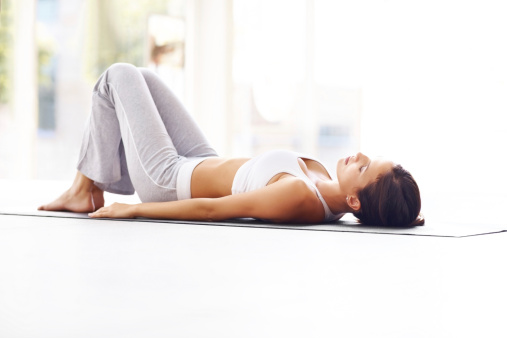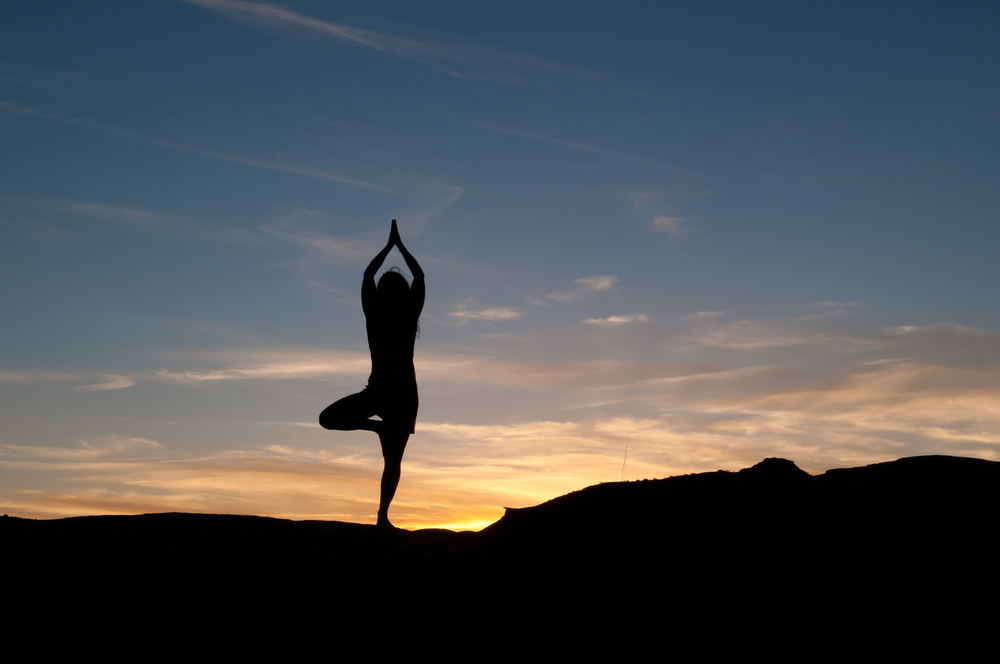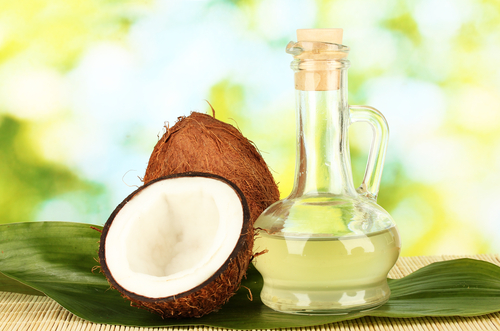10 Amazing Benefits of Exercise and Fitness
10 Amazing Benefits of Exercise and Fitness
1. Exercise Super Charges Brainpower
Not only does exercise improve your body, it helps your mental function. Exercise increases energy levels and increases serotonin in the brain, which leads to improved mental clarity. All that makes for a more productive day and a happier employee which equate to better employee retention.
People who are active and who exercise are much more productive at work. Improved productivity not only makes you a better worker, it makes things better for everyone in the workplace. Companies with less wasted work hours and less sick time end up with lower health care costs--and an improved bottom line. That is why so many companies either have gyms at their offices or help to pay for employees to have gym memberships.

2. De-stress with Exercise and Body Movement
As much as it may stress people out to think about exercising, once they actually start working out, studies show they experience less stress in every part of your life.
Exercise produces a relaxation response that serves as a positive distraction," says Cedric Bryant, chief exercise physiologist for the American Council on Exercise. He says it also helps elevate your mood and keep depression at bay.
You're not the only person who will benefit from more happiness and less stress in your life. When you are less stressed, you are less irritable, and that could improve relationships with your partner, kids, and co-workers. People will feel more satisfied in their daily roles and more accomplished in their everyday tasks.
3. Exercise Provides People with Energy
You might be surprised at how, say, popping in a workout DVD for 30 minutes in the morning can change your whole day. When endorphins are released into your bloodstream during exercise, people feel much more energized the rest of the day.
And when you improve your strength and stamina, it's easier to accomplish everyday tasks like carrying groceries and climbing stairs. This also helps you feel more energetic over the course of the day.
A common excuse for people dodging regular exercise is that they are too tired to exercise. Know that while exercise may make people feel more tired at first, it does not last long, and will actually provide more energy in the long run, even immediately after you finish your exercise routine. The physical tiredness you feel after working out isn't the same as everyday fatigue. Once your body adjusts to exercise, you'll have more energy than ever.
4. Time for Fitness is Easy to Find
Take your kids to the park or ride bikes together, and you're getting physical activity while enjoying family time, he says. Beyond that, go for a hike, take the kids swimming, or play hide-and-seek, tag, softball, or horseshoes in the backyard.
Also, forget the idea that you have to trudge to the gym and spend an hour or more doing a formal workout. Instead, you can work short spurts of physical activity into your day. Movement is key. No weights are required for exercising to count. Walking one hour a day can equate to 10,000 steps, the recommended number of steps to keep your body at a good physical functioning level.
Indeed, squeezing in two or three bouts of 15 or 20 minutes of activity is just as effective as doing it all at once. Vacuuming the house in the morning, riding bikes in the park with the kids in the afternoon, taking a brisk walk in the evening or doing some gardening in the backyard, can add up to an active day.
Recent U.S. government guidelines say that to lose weight and keep it weight off, you should accumulate at least 60 minutes of exercise a day. But half an hour a day of quality exercise like interval training or anaerobic cardio is all you need to reap the health and disease-fighting benefits of exercise.

5. Fitness Builds Better Relationships
Think of what exercising with a partner can do for a relationship, whether it's with a spouse, a sibling, or a friend you used to go to lunch with once a week.

Not only that, exercise is always more fun when there is someone to do it with and hold you accountable. Engaging in positive actions together is good for the spirit, mind and the body. Joining a social fitness network or walking with your family or spouse, after meals, or meeting up with people at the dog park for a stroll around the puppy terrain, can help people reach their exercise and fitness goals so much more efficiently than doing it alone.
6. Exercise Helps Ward off Disease
Research has shown that exercise can slow or help prevent heart disease, stroke, high blood pressure, high cholesterol, type 2 diabetes, arthritis, osteoporosis(boneloss), and loss of muscle mass. It also helps ease some aspects of the aging process by strengthening the blood vessels, muscles, and joints, and even boosts immune function so you have a lesser chance of coming down with the cold or flu.
In response to your muscles needing more oxygen, your body will grow more capillaries to deliver more oxygen faster going forward. In addition, over time, regular exercise will make your blood vessels become more flexible allowing them to deliver more oxygen rich blood more efficiently. And if that wasn’t enough, the increased blood flow in your blood vessels serves to clean out excess cholesterol, keeping you free of clogs which can cause strokes and heart attacks.
On a cellular level, exercise benefits the power machines, called mitochondria, in each of the cells in the body by producing energy by and combining oxygen and glucose(orother fuel molecules). This combination produces ATP which is the molecule that gives your cells the energy they need to do their cellular work. When people exercise regularly, the body creates more and stronger mitochondria in each of the cells, making them more powerful and giving them more endurance for everything in life!
7. Fitness Pumps Up The Heart
Not only does exercise help fight disease, it creates a stronger heart--the most important muscle in the body. That helps makes exercise--and the activities of daily life—feel easier.
When you train over a period of time your heart will grow in size, allowing it to pump a larger volume of blood with each stroke(orpump). This allows more oxygen to be delivered to all the cells in your body. At the same time, your heart will build up less plaque and becomes stronger and more efficient at pumping blood.
Within only a couple of days after you start exercising, the body readily adapts to the stimulus it's getting and it becomes easier. You will feel less fatigue. It will not take as much effort when it comes to breathing. You shouldn't have as much pain or soreness.
8. Exercise Lets You Eat More
You've heard this one before: pound for pound, muscle burns more calories at rest than body fat. So the more muscle you have, the higher the resting metabolic rate. And, of course, you also burn calories while you're actually exercising.
Why is metabolism boosting so great? Jump start your metabolism through exercise(especially strength training and interval work) will allow your body to burn more fat and use up more energy while existing, so that you can eat more(healthier foods are the best). Once most people begin exercising and seeing the body changes, they desire to be healthier in the eating category and opt to eat more fresh fruits and vegetables and less of the processed and fatty foods. Our bodies will actually tell us what it needs in the form of cravings. So listen to the good words that your body is asking for and tap into healthier foods the body needs to fuel workouts. People who do move their bodies will be able to eat(inmoderation) more of a variety of foods(eventhe bad kinds) than those who do not.

9. Exercise Boosts Performance
In just a short few weeks of consistent exercise, most people will begin to see differences, from how your clothes fit on the body to a more toned physique. You man even begin to notice that the same cardio exercises may become easier to complete, or that your basketball, golf, soccer or tennis game is a little bit better? Exercising consistently will strengthen your muscles, increase flexibility, better your balance and reaction time; as well improve your overall performance.
When people use their muscles beyond what they can handle, either through aerobic exercise or weight bearing exercise, it causes the body to build new muscle tissue. Tiny tears can occur with weight lifting, and when these tears are repaired, this is what causes the muscle to become larger and more defined. Larger, stronger muscles will raise your metabolism making weight management easier.
10. Exercise For More Reasons Than Weight Loss
Weight loss is the reason many people exercise in the first place. But it's certainly not the sole benefit of an exercise program. The long-term goal of weight loss is not enforced enough to people new to exercise or starting fitness programs, and this is not sustainable and can be discouraging. People have trouble sticking with something if they don't see results quickly, and if they are looking for a quick fix.
Do not make losing weight your only goal when starting an exercise program or exercising in general. Strive to feel better, to have more energy, increase optimal functioning of the body, and erase the aging process, to be more grounded and to be less stressed. Notice the small things that exercise does for you, like appreciate the time you take for yourself, to feel a great sense of accomplishment every day you sweat, rather than getting hung up on the narrow goal of the number on a scale.

















